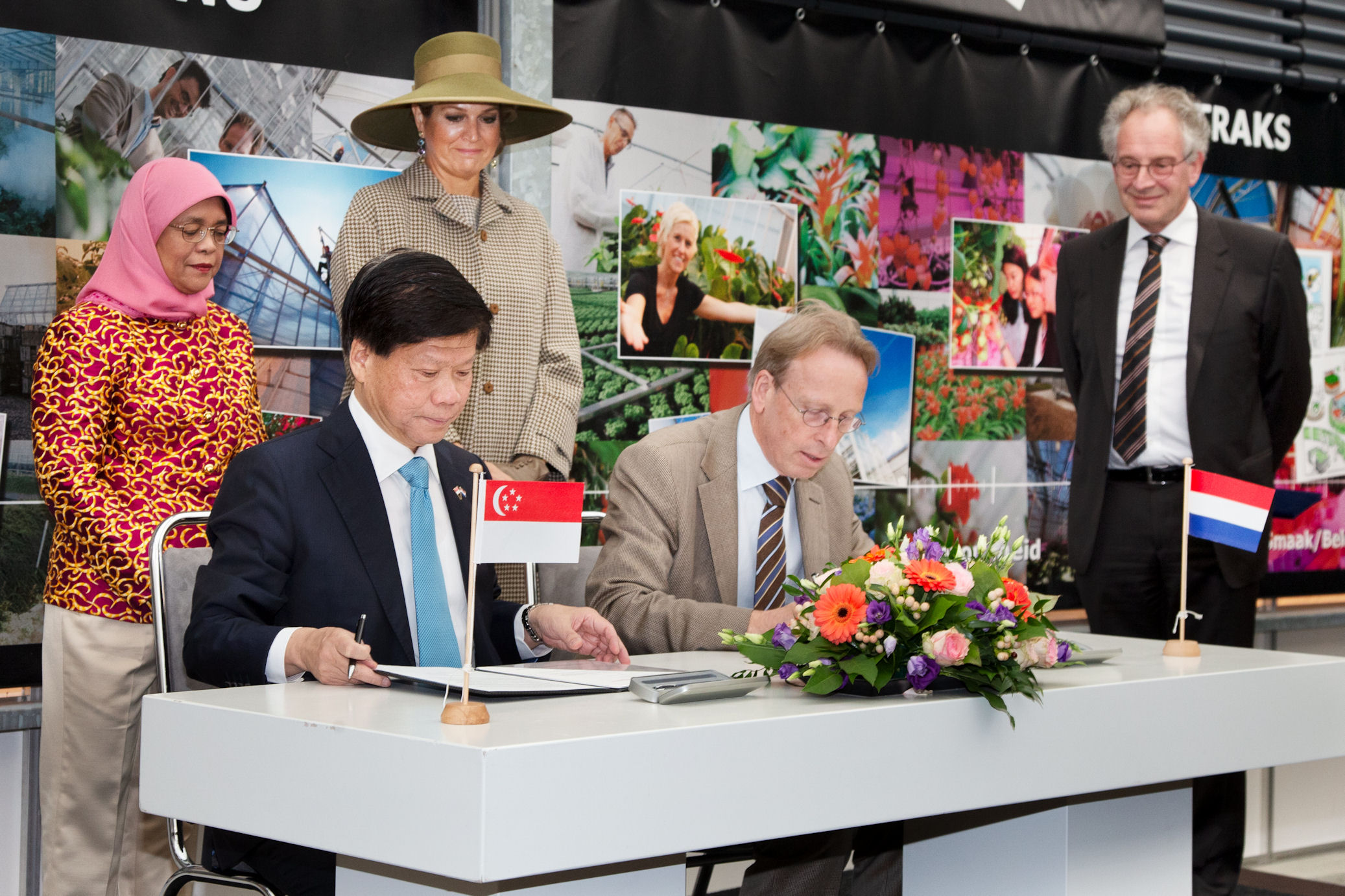NTU Singapore and UG sign Double Doctorate agreement
The highly ranked Nanyang Technological University (NTU) in Singapore and the University of Groningen (UG) have signed a Collaborative Degree PhD Programme in Materials and Nanoscience/-engineering. This agreement allows for the co-supervision of PhD students in these fields, by both NTU and UG researchers, leading to a Double Degree for the PhD candidates involved.
The signing ceremony was organized as part of the Singapore state visit to the Netherlands from 20-24 November. Singapore’s President Halimah Yacob and Queen Máxima of the Netherlands witnessed the ceremony, with NTU’s Professor Lam Khin Yong and UG’s Vice President Jan de Jeu as signatories. NTU is ranked #51 in the THE World University Rankings 2019 and #12 in the QS.
For questions, please e-mail Liza Ten Velde, Policy Adviser for Internationalization at the Faculty of Science and Engineering, University of Groningen.

More news
-
10 February 2026
Why only a small number of planets are suitable for life
-
09 February 2026
Can we make the earth spin in the opposite direction?
